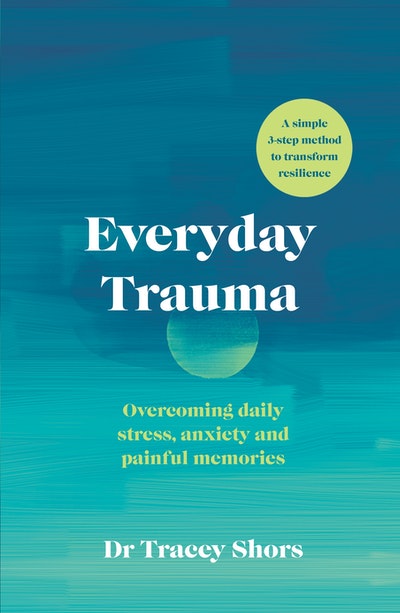- Published: 6 January 2022
- ISBN: 9781785042676
- Imprint: Vermilion
- Format: Trade Paperback
- Pages: 208
- RRP: $42.99
Everyday Trauma
Overcoming daily stress, anxiety and painful memories
- Published: 6 January 2022
- ISBN: 9781785042676
- Imprint: Vermilion
- Format: Trade Paperback
- Pages: 208
- RRP: $42.99
Shors's research is impressive, and she effectively explains the complicated relationship between trauma and memory ... a fine introduction to the workings of trauma.
Publishers Weekly
In Everyday Trauma, Dr. Shors maps a path for recovery based on her deep knowledge of neuroscience and courageous compassion. This meditative 'fit for life' path of brain repair and restoration can enrich every moment, anywhere, anytime.
Roberta Diaz Brinton, Regents professor of pharmacology and neurology, University of Arizona
Everyday Trauma is an engaging book that informs the reader about the brain and bodily processes underlying emotional trauma, as well as effective treatments for the consequences of trauma. Tracey Shors, a highly recognised neuroscientist, presents the scientific evidence clearly and crisply and buttresses the findings with fascinating personal stories. Anyone interested in understanding emotional trauma should have this book.
James L. McGaugh, author of Memory and Emotions
An accessible, exciting and valuable description of a complex and important issue in mental health: the effects of trauma/stress on depression and anxiety - particularly in women - as mediated by ruminative thought patterns. It draws from many diverse areas of research and presents a beautifully developed analysis suggesting the value of specific mental and physical (MAP) activities to increase resilience to trauma: fascinating from a research perspective; potentially important in all of our lives!
Caroline Blanchard, Emeritus Professor, University of Hawaii



